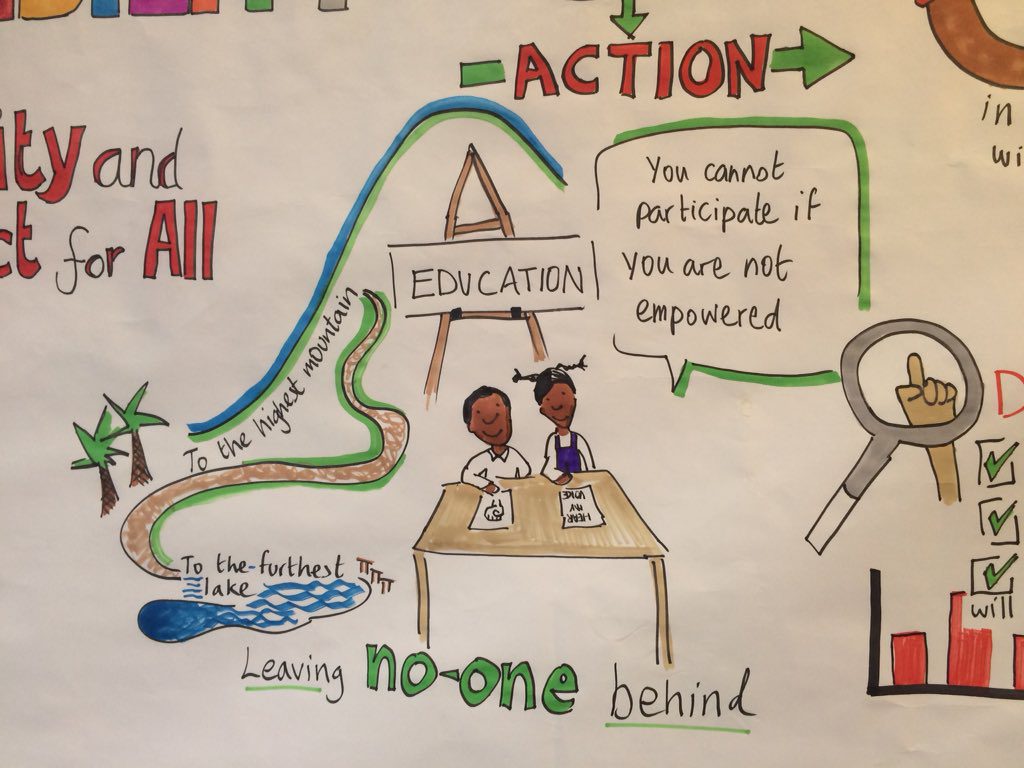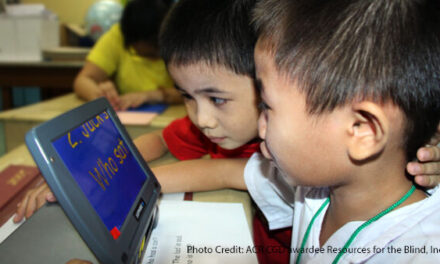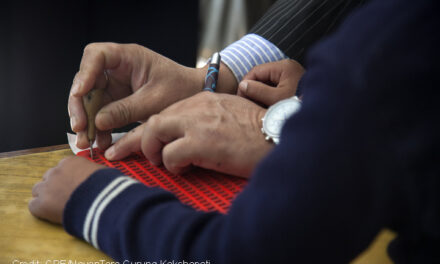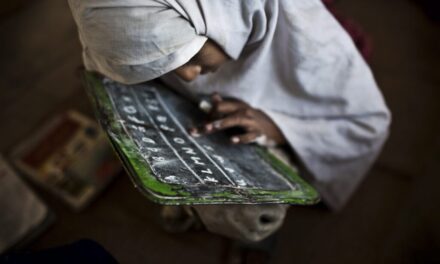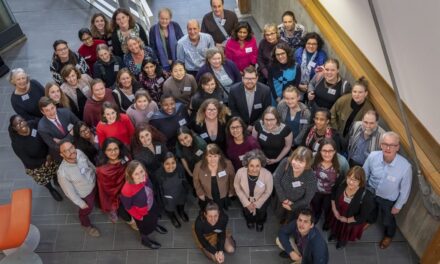This blog was written by Jacqui Mattingly, Principal Education Adviser at Education Development Trust, and first published here on 2 August 2018. She has authored a trilogy of research reports looking at the right to education for children with disabilities in Rwanda, Madagascar and Comoros in support of an overall study of the situation across the region.
It was a real privilege to have the opportunity to attend the first Global Disability Summit in July in London hosted by the UK’s Department for International Development (DFID), the Government of Kenya and the International Disability Alliance. The event aimed to promote the rights of people with disabilities by tackling the root causes of stigma, discrimination and abuse, and working towards inclusive education and employment for all. It also highlighted the use of technology, innovation and assistive devices for people with disabilities across the world.
Inclusive policymaking
The summit brought together global leaders, government officials, donor agencies, civil society, disabled people’s organisations and the private sector to ensure people with disabilities are included in both policy making and society as a whole. It was a vibrant and upbeat meeting striving for action to:
- raise global attention and focus on a long-neglected area;
- bring in new voices and approaches to broaden engagement;
- mobilise new global and national commitments on disability; and,
- showcase best practice and evidence from across the world.
The Secretary of State for International Development, Penny Mordaunt, opened the summit in a speech given in sign language, claiming: ‘Discrimination and stigma against disabled people is a global injustice we need to fix urgently.’
As an inclusive education adviser, I am aware that children with disabilities continue to be among the most marginalised and excluded from education opportunities, and it was great to finally have inclusive education put on the map as a key theme of the summit.
Building Learning Foundations held up as a beacon
I was proud to hear Penny Mordaunt in a keynote speech on inclusive education reference DFID’s commitment through work I have been directly involved with myself: the Building Learning Foundations programme in Rwanda which will support primary teachers in maths and English to be more inclusive of learners with disabilities.
She also launched a new and exciting inclusive education initiative in partnership with the Norwegian Agency for Development Cooperation (NORAD) and the World Bank; this is something Susy Ndaruhutse, Head of International Development, and I had undertaken a scoping study for in partnership with the Research for Equitable Access and Learning (REAL) Centre at the University of Cambridge prior to the summit. We were all pleased to know this work would now lead to some positive change. The initiative will support countries to strengthen disability-inclusive education planning, implementation, and monitoring of learning outcomes for children with disabilities by supporting and encouraging partnerships, promoting data collection, investing in teachers, and aggregating evidence of practice and solutions at scale. This will support inclusion to become the norm, therefore allowing every child the same opportunity to go to school, learn, and succeed.
Making inclusivity integral
Other important pledges were given by the UN agencies, who committed to work collaboratively to change the way they include people with disabilities into their work. Equally, the World Bank is developing a framework to provide inclusive education as an integral component of all its education projects.
Education Development Trust had a stand at the event and it was great to be represented alongside such a wide range of organisations providing disability inclusive development programmes and services. I was particularly pleased we had information about our work in inclusive education translated into Braille to share with delegates – a first for us and something we will certainly be looking to do more of in the future.
Education Development Trust’s commitment to inclusivity
Attendees were asked to support a ten-point charter for change to take action on stigma and discrimination against people with disabilities endorsing rights, dignity and inclusion for people with disabilities. Some 301 organisations and governments have signed the charter, and having worked in the development of inclusive education for my entire career, I was pleased that as an organisation, Education Development Trust has committed to this with the following commitments:
- Our mission is to transform lives by improving education around the world and this includes supporting education systems to reduce discrimination and become more open to diversity. We will also support teachers to deliver education programmes that challenge attitudes and behaviours that reinforce discrimination
- We work with governments and their partners to allow every child the improved chances a quality education provides. Quality education must be inclusive as this is the only way to ensure equity of opportunity for every child.
I am looking forward to working to making these commitments become a reality.
Education Development Trust and REAL (University of Cambridge, Faculty of Education) are both member organisations of UKFIET.

